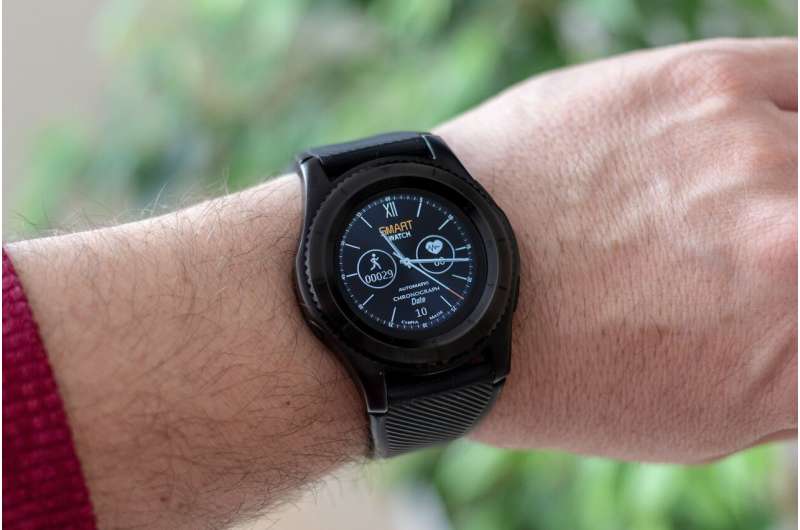This article has been reviewed according to Science X's editorial process and policies. Editors have highlighted the following attributes while ensuring the content's credibility:
fact-checked
trusted source
proofread
A good pedometer encourages physical activity—but not for everyone

eHealth can improve our lifestyle without the involvement of a health care provider. Talia Cohen Rodrigues investigated the possibilities for people with cardiovascular diseases. She will defend her doctoral thesis on 14 March.
"You have 1,563 steps left to reach your step goal for today. Would you like to take a stroll?" When a sports watch provides such feedback, there is a much greater chance that you will take more steps than with a pedometer that does not.
It also helps if an app teaches you something about health: "It's very good that you drink sugar-free cola; it doesn't contain sugar. But it does contain caffeine, which raises your blood pressure." In addition, effectiveness increases when an app is interactive: if you can choose your step goal and set it when you receive feedback.
Better results with a cycling test
Social psychologist and communication scientist Talia Cohen Rodrigues wanted to know to what extent eHealth can be successful without additional guidance from a health care provider. For this, she analyzed the results of 104 previous studies on the effectiveness of eHealth. She discovered that automatically generated feedback could be just as successful as feedback from a health care provider.
"A good eHealth application without human intervention can really help improve someone's eating or exercise behavior and health outcomes, such as the results of a cardiological cycling test or exercise behavior." Examples of such applications are Headspace, for stress reduction, and My Lifestyle Coach from Albert Heijn. "Health insurers like Zilveren Kruis and ASR also offer apps with automated support."
High-risk group of older men resistant
Cohen Rodrigues interviewed sixteen health care professionals and surveyed over 650 people with cardiovascular diseases about their opinions and expectations of lifestyle interventions and eHealth.
"It was striking that health care providers thought their often older patients would prefer to see a health care professional because they may not be very adept with technology. Patients thought differently and often prefer to take matters into their own hands. Without eHealth and without a health care provider."
However, this does not apply to everyone. "Women and younger patients want to be guided by an app or a coach to improve their lifestyle. Older men, who form the most important risk group for cardiovascular diseases, think they can handle it themselves." Incorrectly, as experience teaches us.
Cohen Rodrigues believes that we need to offer patients alternatives. "Current rehabilitation programs after a heart incident are rather uniform. People often receive group sessions and fixed content. An app offers the opportunity to create a tailor-made program and give patients autonomy in improving their lifestyle."
Making literal and figurative strides forward with eHealth without human intervention sounds very appealing. Especially in times when health care costs are soaring. Is such eHealth the solution for increasing obesity and other lifestyle problems? Cohen Rodrigues fears not for two reasons.
"If you drank tea instead of cola thanks to your app, it doesn't help if the supermarket keeps offering cheap cola." Secondly, "eHealth can make many people aware of their behavior and help change it. But there are vulnerable groups where we need to be cautious with such solutions, such as people with a low socioeconomic status."
It is precisely these people who live five years shorter than others and fourteen years less in good health: these are significant socioeconomic health disparities. Cohen Rodrigues says, "People with a low socioeconomic status are the ones who need to improve their lifestyle the most." Illiteracy or lower digital skills make eHealth less effective. Additionally, there is another reason why behavioral change is particularly difficult for these people.
"Due to concerns about, for example, lack of money, these people often have no mental space to work on their health." That's something we as a society should address, the doctoral candidate believes. "Otherwise, successful eHealth will only exacerbate health disparities."
More information: Thesis defense: www.universiteitleiden.nl/en/e … estyle-interventions





















